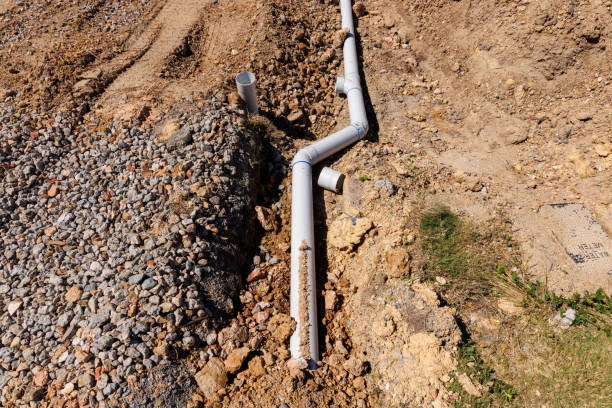In a significant move within the plastics industry, WL Plastics has officially announced its acquisition of the Charter Plastics HDPE pipe business. This strategic acquisition is set to enhance WL Plastics’ position in the high-density polyethylene (HDPE) market, catering to a diverse range of applications in the infrastructure and construction sectors. This article delves into the implications of this acquisition, the advantages of HDPE pipes, and the future of WL Plastics in the HDPE landscape.

Understanding HDPE Pipe
High-Density Polyethylene (HDPE) pipes are known for their durability, flexibility, and resistance to various environmental factors. These characteristics make HDPE pipes an ideal choice for a variety of applications, including water distribution, wastewater management, and industrial systems. Their lightweight nature and ease of installation further contribute to their popularity among engineers and contractors.
Benefits of HDPE Pipe
- Durability: HDPE pipes are resistant to corrosion and chemicals, ensuring a long lifespan even in harsh conditions.
- Flexibility: The flexibility of HDPE allows for ease of handling and installation, reducing the need for fittings and joints.
- Cost-Effectiveness: The lightweight nature of HDPE pipes lowers transportation costs and makes installation easier, resulting in overall cost savings for projects.
- Environmental Impact: HDPE pipes are recyclable, contributing to sustainable construction practices.
- Pressure Ratings: HDPE pipes come in various pressure ratings, making them suitable for different applications, from low-pressure irrigation systems to high-pressure water distribution.
WL Plastics: A Leader in HDPE Pipe Manufacturing
WL Plastics has been at the forefront of HDPE pipe manufacturing, focusing on innovation and sustainability. The company specializes in producing high-quality HDPE pipes for various industries, including municipal, industrial, and mining sectors. With this acquisition, WL Plastics aims to expand its product offerings and enhance its capabilities in manufacturing HDPE pipes.
Strategic Importance of the Acquisition
The acquisition of Charter Plastics’ HDPE pipe business aligns with WL Plastics’ growth strategy. By integrating Charter’s resources and expertise, WL Plastics will bolster its production capacity and product range. This move is particularly strategic as the demand for HDPE pipes continues to grow, driven by increasing infrastructure projects and a shift towards more sustainable materials.
Expanding Market Reach
With Charter Plastics’ established customer base and distribution networks, WL Plastics can expand its market reach significantly. This acquisition provides WL Plastics with the opportunity to tap into new regions and sectors, further solidifying its presence in the HDPE market.
Enhancing Product Offerings
Charter Plastics has a strong portfolio of HDPE pipe products. By merging these products with WL Plastics’ existing offerings, the company can provide customers with a more comprehensive range of solutions. This includes various sizes, grades, and customizations tailored to specific project needs.
The Future of HDPE Pipe
The future of HDPE pipes looks promising, particularly in light of increasing environmental regulations and the push for sustainable materials. As infrastructure needs grow worldwide, the demand for durable and eco-friendly pipe solutions will continue to rise.
Innovations in HDPE Technology
Advancements in HDPE technology are leading to the development of smarter, more efficient products. These innovations include improved manufacturing techniques, enhanced materials, and integration with smart technologies for monitoring and management.
Smart Water Management
With the increasing emphasis on water conservation, smart water management systems utilizing HDPE pipes are becoming more prevalent. These systems can detect leaks, monitor flow rates, and optimize water usage, significantly reducing waste and improving overall efficiency.
Sustainability Initiatives
As part of its commitment to sustainability, WL Plastics is likely to invest in environmentally friendly practices. This includes sourcing recycled materials for HDPE pipe production and minimizing waste throughout the manufacturing process. The focus on sustainability will not only meet regulatory requirements but also appeal to environmentally conscious consumers and businesses.
Conclusion
The acquisition of Charter Plastics’ HDPE pipe business marks a pivotal moment for WL Plastics as it enhances its capabilities and market reach within the HDPE industry. With a strong emphasis on innovation, sustainability, and customer satisfaction, WL Plastics is poised to lead the charge in providing high-quality HDPE pipes for a variety of applications. As the demand for durable and eco-friendly materials continues to rise, WL Plastics is well-positioned to meet these needs and contribute to a sustainable future.
Frequently Asked Questions (FAQs)
1. What are HDPE pipes used for? HDPE pipes are widely used in water distribution, sewage systems, gas distribution.
2. How long do HDPE pipes last? HDPE pipes can last over 50 years with proper installation and maintenance. Making them a long-lasting solution for various applications.
3. Are HDPE pipes recyclable? Yes, HDPE pipes are recyclable, contributing to environmental sustainability by reducing waste.
4. What are the advantages of HDPE over traditional materials? HDPE pipes are lighter.More flexible, and resistant to corrosion compared to traditional materials like PVC or metal. Making them easier and cheaper to install.
5. How does WL Plastics ensure the quality of its HDPE pipes? WL Plastics employs stringent quality control measures throughout the manufacturing process. including testing for strength.


















